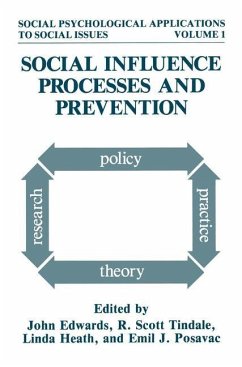Community psychology (CP) has a rich history and presence internationally that many people may not be aware of. Today's increasingly global environment encourages reviewing the world-wide goals and practices of CP. The desire to promote collective well-being clearly transcends geographical boundaries. The goal of developing a global perspective and discourse between countries has been delayed by the lack of a single, accessible source for information.
This book provides the first in-depth guide to global community psychology research and practice, history and development, theories and innovations, presented in one field-defining volume. Included are contributions from countries with long histories of oppression, social movements, and political turmoil; long-time democracies and former dictatorships. Fully-formed CP establishments compare with fledgling ventures into the field. The contributors document the complex relationships between CP and ideological currents, other strands of psychology and social science, cultural and historical traditions, and economic developments.
The goals of this book are several: Promote international collaboration, enhance theory utilization and development, identify biases and barriers in the field, accrue critical mass for a discipline that is often marginalized, minimize the pervasive US-centric view of the field.
Practitioners and researchers will find in "International Community Psychology" new perspectives on the communities they serve. As a text for advanced and graduate-level courses, it depicts a robust field with a legitimate mission. When concepts of community - and sometimes even of psychology - may not always translate from one nation to the next, this book provides a world of needed context.
This book provides the first in-depth guide to global community psychology research and practice, history and development, theories and innovations, presented in one field-defining volume. Included are contributions from countries with long histories of oppression, social movements, and political turmoil; long-time democracies and former dictatorships. Fully-formed CP establishments compare with fledgling ventures into the field. The contributors document the complex relationships between CP and ideological currents, other strands of psychology and social science, cultural and historical traditions, and economic developments.
The goals of this book are several: Promote international collaboration, enhance theory utilization and development, identify biases and barriers in the field, accrue critical mass for a discipline that is often marginalized, minimize the pervasive US-centric view of the field.
Practitioners and researchers will find in "International Community Psychology" new perspectives on the communities they serve. As a text for advanced and graduate-level courses, it depicts a robust field with a legitimate mission. When concepts of community - and sometimes even of psychology - may not always translate from one nation to the next, this book provides a world of needed context.
This book is doubly distinctive. On one hand, it pulls the best community research and action in the field from a broad spectrum of current worldwide and historical material. On the other hand--and here is the breakthrough--it's a powerful argument for the commonalities and uniqueness of the history and development of community psychology all over the world. This approach facilitates the exchange of theories, methods, and in particular, fundamental ideas for the development of community psychology in each country. It also strengthens the position of the discipline within the international scientific community. -Alessio Vieno Ph.D. University of Padova Italy This book is an important step in creating new possibilities for dialogue and developing community psychology internationally. The project brings together many authors who share their understanding of the developments of community psychology in their countries, of principles, concepts and theories, and of applications and future possibilities in their respective contexts. This breadth of representation and the diversity of the community psychology story internationally is the most appealing aspect of this book for me. Most important this book asserts the place of community psychology within the broader international community of researchers and practitioners. Christopher C. Sonn, Ph.D.Victoria UniversityMelbourne, Australia








